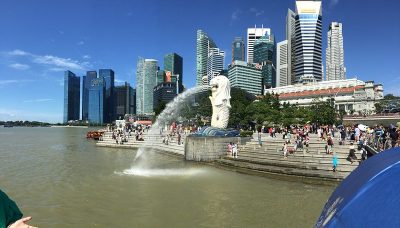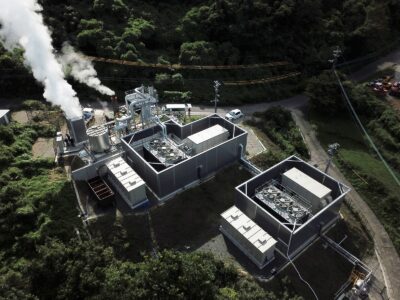IFC launches advisory program pushing renewable energy financing
IFC launches an advisory program for local financial institutions on sustainable energy financing in line with its global strategy of doubling investments in renewable energy.
A recent article on the International Finance Corporation’s push for renewable energy financing caught my eye. It talks in particular about the Philippines, a country with a huge potential for further geothermal energy development.
The corporation announced the launch of “an advisory program for local financial institutions on sustainable energy financing in line with its global strategy of doubling investments in renewable energy.
“Our portfolio for fiscal year ’08…we have about $1.3 billion in renewable energy projects [worldwide], and we are looking to increase that to $3 billion by the fiscal year ’09 to 2011,” Jesse O. Ang, IFC resident representative in the Philippines, said in a press conference.
“Here in the Philippines we see tremendous opportunity in the renewable energy space.”
In line with this, the IFC yesterday launched the Sustainable Energy Finance Program “to assist local banks in moving loan financing away from high energy consuming projects toward those favoring energy efficiency, and emission reduction while meeting the country’s growing energy needs.”
“IFC’s program is based on the idea that financing sustainable energy projects can be good business while at the same time helping to combat climate change,” Mr. Ang said.
“We will be providing money and know-how to Philippine banks so that they can provide capital to renewable energy and energy efficiency projects.”
Through the Sustainable Energy Finance Program, IFC said that they will be extending help to local financial institutions develop sustainable energy investments by providing financial and technical support, like entering into risk-sharing agreements.
“We see that this is a country that is rife for the sustainable energy finance program,” Mr. Ang said, citing that the shortages in the Visayas and Mindanao grids, as well as the high cost of power in the country compared to those of its neighbors.
William Beloe, head of advisory services of IFC Philippines, said that, together with the Department of Energy, they have identified “over $8 billion worth of financing opportunities available within renewable energy and energy efficiency.”
“And as a result, the IFC thinks it’s very important that the Philippines makes the most of this opportunity,” Mr. Beloe added.
So far, IFC has helped local financial institutions in generating a total of about P1.7 billion in sustainable energy loans.
Mario C. Marasigan, DoE assistant secretary, said that renewable currently account for 34%, of the country’s generation mix.
From a present 4,500 MW in renewable energy capacity, the government targets to double the figure in 10 years to 9,000 MW.
“The Renewable Energy Act has started to bear fruit. The Department of Energy has approved several green power projects,” Mr. Marasigan noted.
The Philippines is presently considered as the world’s second largest geothermal energy producer and the largest wind energy developer in Southeast Asia.
Among the landmark pieces of legislation in the country which promote the use of alternative and renewable energy sources are the include the Biofuels Act of 2006, which mandates the mix of fuel sourced from local crops at the pump, and the Renewable Energy Act of 2008, which provides fiscal and non-fiscal incentives to proponents of renewable energy projects, respectively.”
Source: Business World Online











